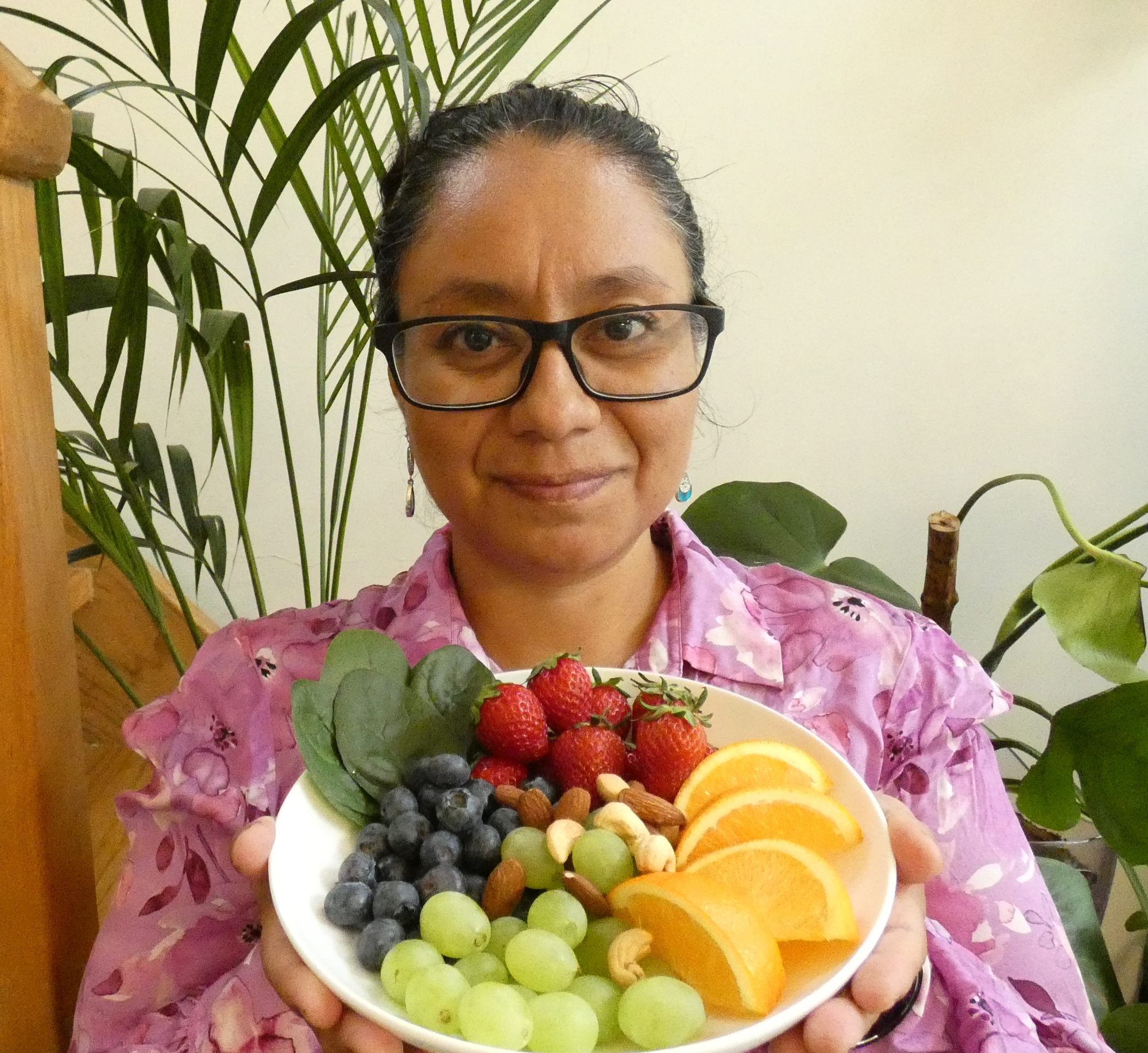
Practise mindful eating for lower stress, say scientists – smell, feel, and admire your food before you have it
- Are you hungry or just stressed out? Scientists in Hong Kong say taking a few minutes to really focus on food before eating it can help you tell the difference
- Practising mindful eating can help curb the food cravings that lead to unhealthy quick fixes and help you learn how to better savour the eating experience
In a bustling Starbucks in Hong Kong, Dr Dalinda Isabel Sanchez Vidaña and Douglas Affonso Formolo are sitting and staring at three raisins on a napkin.
Formolo – a PhD candidate in Hong Kong Polytechnic University’s department of rehabilitation sciences – is told to admire the dried fruit, smell it, caress it with his lips, and go through several other steps before he can actually swallow it.
He eats two of them in a span of 10 minutes.
This is a glimpse into the kind of mindful eating exercises that are done in the Mindfulness-Based Eating Awareness Training programme hosted by Sanchez Vidaña, research assistant professor and Formolo’s colleague.
The purpose is to focus the brain’s attention entirely on the act of eating, and the resulting sensations and body signals.

Health practitioners have long preached the benefits of mindful eating: better digestion, healthier food choices, smarter decision making, reduced stress, improved satisfaction, weight management, an increased appreciation for food … the list goes on.
Mindful eating is touted as the key to changing our relationship with food – something many need in a city like Hong Kong, where stress eating is common thanks to how late restaurants are open and their tendency to prioritise taste over healthfulness.
Try mindful eating – and enjoy a better relationship with food
Secondly, it takes practice – but not everyone has the patience or self-control to marvel at their food for 10 minutes before eating.
To get there, Sanchez Vidaña and Formolo suggest splicing mindful eating into smaller habits so “from a neuroscience point of view, you can offer an alternative path for your brain to learn a new set of behaviour”, says Formolo.
He is hosting a talk called “Hacking Happiness & Health through Neuroscience” on April 26 – at bookstore Knock Knock in Sai Ying Pun on Hong Kong Island – in partnership with active lifestyle platform Today Fit.

During this time, biological hunger should reveal itself through things like physical weakness, salivation and an empty stomach.
If it does not, then assess your stress level and emotions and seek other methods of comfort, such as a taking a short break or going for a walk.
“When we’re anxious or stressed, we crave sweets. This is because sweets can biologically reduce our stress response. But falling into this habit creates a vicious cycle because the next time we are stressed, the same cravings will emerge,” says Formolo.
“Our brains need a good reason to support behaviour; if doing one thing generates a positive result, it’ll become its default setting. The goal here is to make a new default mode through reprogramming our brains.”
Mindful eating must be regularly practised to see changes. It’s like brushing your teeth: we don’t like to do it when we’re young, but we see the benefits later
This rewiring process is easier said than done, given the symbolic significance food has in our emotions, cultural upbringing and innate reward system.
“So be kind to yourself rather than wallowing in guilt or self-blame,” says Sanchez Vidaña – falling off the health wagon is acceptable as long as mindful eating and conscious choices are still practised.
“Cravings are a part of us, so show some self-compassion; savour and enjoy every bite and you’ll find that you may not need to finish that whole sleeve of Oreo [biscuits] to scratch that itch, and only half will do the trick. It’s not all or nothing.”

Another way to curb food cravings is to stick to scheduled mealtimes so our bodies do not slump into primitive, biological hunger that can result in unhealthy quick fixes.
“You don’t need to finish everything, say during lunch time, if you don’t feel that hungry yet: have half your plate or a snack,” advises Sanchez Vidaña.
She adds: “Mindful eating must be regularly practised to see changes. It’s like brushing your teeth: we don’t like to do it when we’re young, but we see the benefits later and do it without even questioning it. During the process, you might even learn something new.”
How to put down your phone, eat mindfully, and lose weight
Pamela Dabdoub, partner of Permaclub in Clear Water Bay in Hong Kong’s New Territories, takes the reverse approach to mindful eating by fixing people’s relationship with food.
“The people who claim they don’t have space to [cook or maximise their produce] are also the ones who have a second closet full of shoes or prioritise other things over their nutrition,” Dabdoub says, adding that the disconnect between city people and farms is the ultimate culprit.
“Not everyone needs to be a farmer, but they need to have their plant connection: when you tend to your own tomato tree you make observations of its growth, and mindfulness becomes top of mind.”

“We need to be careful of lists and habits when it comes to mindful eating, because they could be harmful if done mindlessly,” Formolo says. “Sure, drinking water before a meal is a so-called hack to eat less, but what’s enough?
“Morning coffee is a habit of mine, but what if I am already stimulated that day? Mindful eating helps you get in touch with these subtle signals. Nutrition is important; but it’s the mindful practice and awareness that come with what we put into our mouths.”
What is intuitive eating? It’s ‘not a diet’ – TikTok trend’s health benefits
Keeping this part of the nervous system happy, he says, helps temper emotional eating. Deep, slow breaths through the abdomen help, as does a healthy gut microbiome – achieved by consuming whole foods, whole grains and probiotics.

She adds: “Every bottle of kombucha serves as a reminder to be grateful and present in the moment. Making kombucha takes time, so it’s also an expression of appreciation for all the patience, effort, and ingredients it took to create that bottle of kombucha.”
A 2023 study published in the Journal of Child Psychology and Psychiatry showed that imbalances in the gut microbiome were more prevalent in ADHD (attention deficit hyperactivity disorder) patients, testament to the bidirectional link between gut and brain.
In addition, 95 per cent of serotonin – the mood-controlling, feel-good chemical – is produced in the gut and can be boosted by probiotics, sunlight, exercise and foods like soy and salmon.

At the Starbucks, now brimming with lunch crowds, the mindful-eating raisin exercise has finished, and Formolo is shocked by the effect scent has on his appetite.
“When I was asked to smell the raisin, the feel-good triggers instantly clicked. Even when I eat it, the experience wasn’t as striking as the smell; so the takeaway here is how much of my relationship with food is based on smell. I didn’t expect this.”

